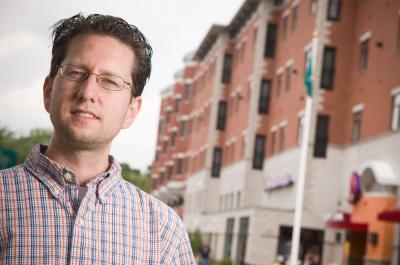EAST LANSING, Mich. — Quality public schools benefit everyone – including those without school-aged children – and therefore everyone should play a role in maintaining them, according to a study by two Michigan State University scholars.
Senior citizens and others who don't have children in school often argue they should be exempt from paying school taxes because they don't benefit from the schools. But that's not true, argues Zachary Neal, sociologist and lead researcher on the study, which appears in the Journal of Urban Affairs.
"Those without kids in school are getting just as much benefit from public schools as those with kids and accordingly should be just as responsible for maintaining the schools," Neal said. "It's unfair for those without kids to benefit from public schools but not play a role in taking care of the schools."
While many communities offer various school-tax exemptions, those who don't have children in school routinely oppose paying any school taxes, Neal said. In Michigan, nearly half of the 505 school bond elections between 2000 and 2005 failed, according to a March 2010 study in the journal Educational Policy.

A study led by Michigan State University sociologist Zachary Neal suggests that public schools benefit everyone -- even those without kids in school.
(Photo Credit: Michigan State University)
In their study, Neal and co-author Jennifer Watling Neal, assistant professor of psychology, analyzed the data from a Gallup survey of more than 20,000 people from 26 U.S. communities from Michigan to Florida to California. As part of the survey, participants were asked how satisfied they were with their communities and to rate the overall quality of their public schools.
The researchers found a strong relationship between those who were satisfied with their communities and quality schools. This finding was not affected by gender, age, race, employment status or whether the participant owned or rented a home or had children in school.
"We found that having quality public schools makes people more satisfied with their community regardless of whether they had kids in the schools or not," Neal said.
Neal said this is likely due to two major reasons:
- Public schools offer amenities to the entire community such as adult education courses, after-hours computer labs, workout facilities, auditorium space for churches and other groups, and more.
- Public schools have the more indirect benefit of promoting relationships among neighborhood residents. These relationships lead to issues getting solved – such as broken streetlights, unplowed streets or crime problems – that benefit everyone.
"I think it really boils down to seeing public schools as more than just schools," Neal said. "They're community institutions that have an educational mission first and foremost, but they also have these other benefits as well."
Source: Michigan State University